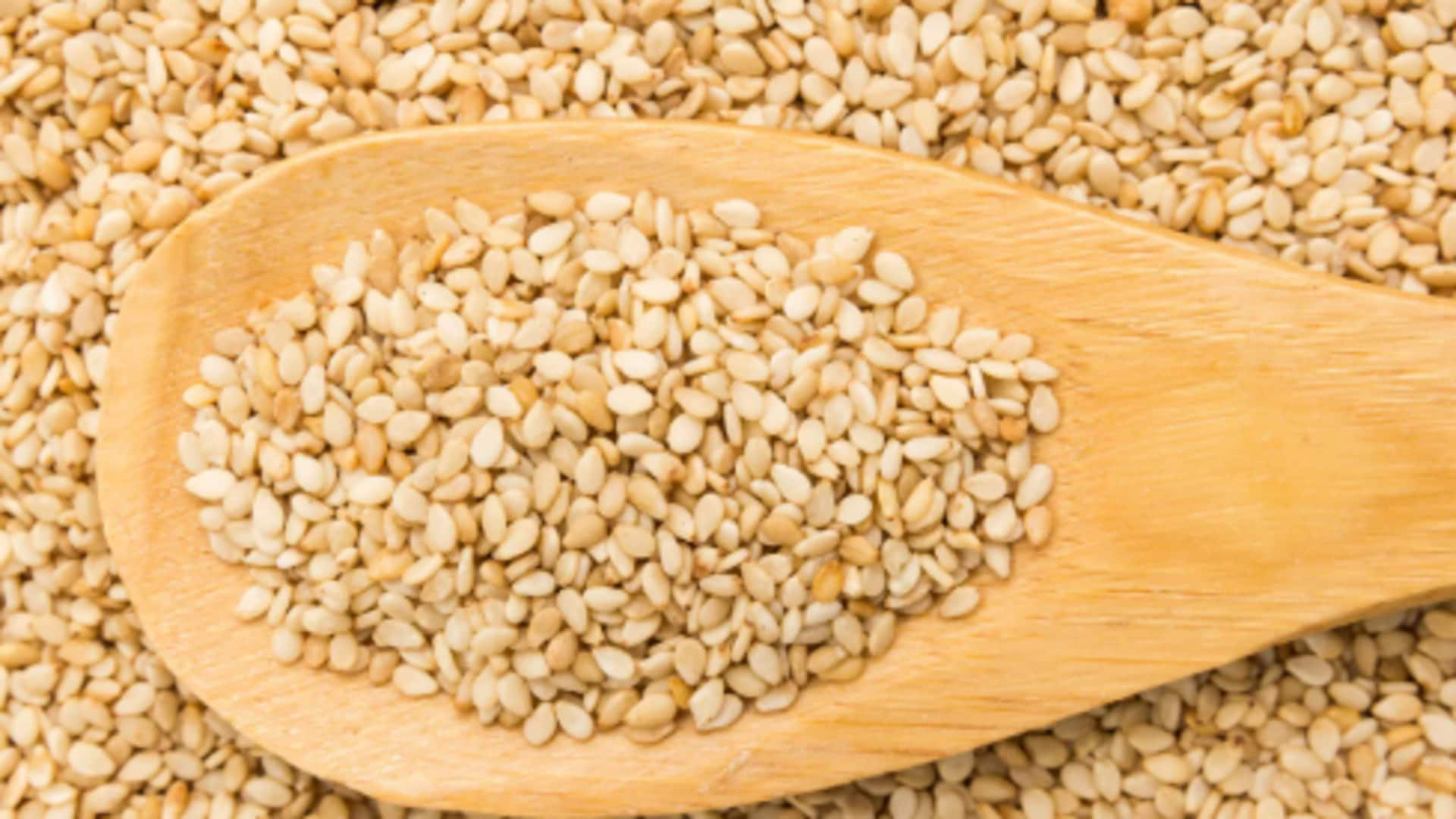
Sesame seeds v/s flaxseeds: Comparing their nutrition
What's the story
Sesame seeds and flaxseeds are two popular superfoods known for their health benefits. While both are tiny, they are packed with nutrients that can contribute to a healthy diet. Sesame seeds are known for their rich flavor and versatility in cooking, while flaxseeds are famous for their high omega-3 fatty acid content. Here's a look at the nutritional profiles of these seeds to see how they compare.
#1
Nutrient density of sesame seeds
Sesame seeds are rich in essential minerals such as calcium, magnesium, and iron. They provide a good amount of protein and healthy fats, making them a great addition to any vegetarian diet. Sesame seeds also contain lignans, which are plant compounds that may have antioxidant properties. Their nutrient density makes them a great option for anyone looking to boost their nutrient intake naturally.
#2
Omega-3 fatty acids in flaxseeds
Flaxseeds are famous for their high omega-3 fatty acid content, particularly alpha-linolenic acid (ALA). These essential fats are good for heart health and may reduce inflammation in the body. Flaxseeds also provide fiber, which helps with digestion and keeps you feeling full. Adding flaxseeds to your diet can be an easy way to increase your intake of these important nutrients.
#3
Culinary uses of sesame seeds
Sesame seeds can be used in a number of culinary applications, from salads to desserts. They can be toasted to enhance their nutty flavor or ground into tahini paste for spreads and dressings. Their versatility makes them an ideal ingredient for adding texture and taste to a variety of dishes without overpowering other flavors.
Tip 1
How to incorporate flaxseeds into your diet
To reap the benefits of flaxseeds, add them to smoothies or oatmeal for breakfast. You can also sprinkle them over yogurt or salads as a crunchy topping. For baking enthusiasts, ground flaxseed can be used as a substitute in recipes or added to bread doughs for extra fiber content.